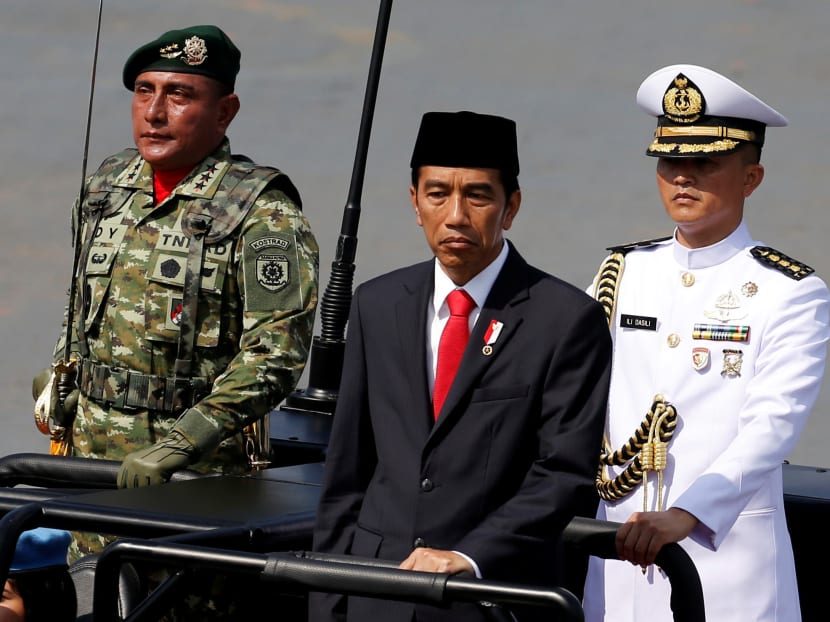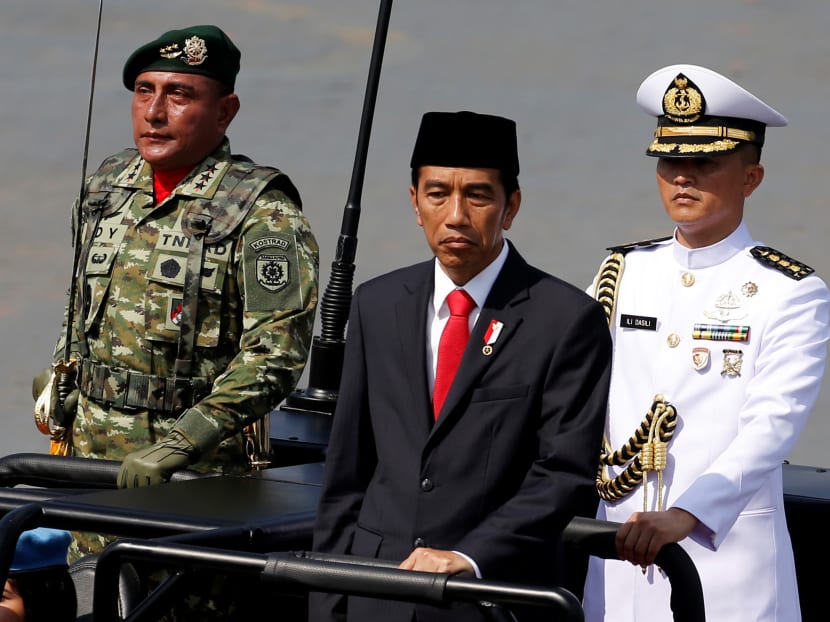Jokowi’s struggle to crack down on corruption
Judging by the latest string of corruption cases in Indonesia, it will be hard for the country to improve its lowly 2016 ranking of No 90 out of 176 countries on Transparency International’s Corruption Index.


Judging by the latest string of corruption cases in Indonesia, it will be hard for the country to improve its lowly 2016 ranking of No 90 out of 176 countries on Transparency International’s Corruption Index.
The losses suffered by the state in Indonesia’s two biggest graft cases is staggering.
The first involves electronic identity cards in which officials allegedly pocketed more than US$170 million (S$233 million) in government money primarily by inflating costs.
The main suspect of the case is the House of Representative (DPR) speaker and Golkar chairman Setya Novanto.
Mr Novanto is among at least 37 other parliamentarians and 12 Home Ministry officials implicated. While other suspects are now on trial, his legal team has successfully contested his pre-trial and last month the judge cancelled his status as suspect.
In another case the KPK (Corruption Eradication Commission) has accused Aswad Sulaiman, a former North Konawe regent in Southeast Sulawesi, of allegedly issuing illegal mining licences between 2007 and 2014, leaving the state to lose an estimated S$272 million from the sale of nickel produced by miners around that period.
Both cases are painful reminders that corruption is still a crippling problem in Indonesia, despite President Joko “Jokowi” Widodo’s ability in maintaining a clean personal image.
Why is it so hard to eradicate high-level corruption in Indonesia? First, not only is the KPK the lone ranger in the fight against corruption, it is facing constant attacks.
Given its role and that the fact KPK is one of Indonesia’s most trusted public organisation, it is ironic but not surprising that it has come under attack from one of the country’s least trusted institution: the DPR.
A DPR committee has launched an inquiry on how to limit the authority of KPK and its investigations.
KPK officials have also been harmed. Novel Baswedan, a senior investigator, suffered two attacks, the latest being acid attack in April this year.
Another investigator Afif Julian received a bomb threat in 2015 and his car was also splashed with acid.
Secondly, despite President Jokowi’s frequent rhetoric against corruption, the electronic ID case casts doubts on his commitment and will to tackle this issue.
When the case was revealed and Mr Novanto’s was named as a suspect, many saw it as a test for President Jokowi’s anti-corruption campaign. Legalities aside, Mr Novanto’s release has led observers to suggest that his political influence and financial clout may have made it hard to the Jokowi administration to go after him.
Mr Novanto’s Golkar party, after all, is an important ally of the ruling coalition led by Mr Widodo’s PDIP (Indonesian Democratic Party Struggle).
A fall from grace for Mr Novanto would split Golkar, and put its alliance with PDIP into doubt.
Losing Golkar would seriously jeopardise the President’s Red and White alliance, particularly as the alliance’s solidarity seems increasingly under strain on a range of issues such as on presidential threshold (the minimum percentages of votes/seats needed by political parties to nominate presidential candidates) and a presidential decree on mass organisations.
So far, Mr Widodo has distanced himself from the electronic id case, only making statements implying that KPK needs all the support it can get.
This has led to a growing impatience among his supporters who want the President to send a stronger signal on where he stands on a sensitive issue like this.
To be sure, Mr Widodo faces a daunting task in tackling corruption.
Even his own party PDIP is not behind him.
It has initiated the campaign against KPK and its politicians are among the most vocal and active in strengthening the committee – putting Mr Widodo’s anti-corruption reputation in an awkward situation.
Overall, Indonesia’s fight against corruption remains work in progress. Until a major shakeup of party leadership, or positive breakthroughs in empowering KPK, Indonesia will continue to tolerate high-profile corruption cases.
For Mr Widodo, greater support for KPK will help to redeem his anti-corruption credentials. So far, KPK always seems overwhelmed when tackling cases which implicate top politicians. A step forward in such cases may be a strong signal that voters are waiting for.
Mr Widodo won the 2014 election partly because Indonesian voters saw promise in him and they liked the fact that he had little prior ties to political parties and mainstream elites.
As he heads for the 2019 election, he needs to carefully strategise the way he manoeuvres between various party interests and how that would impact his popular image.
ABOUT THE AUTHOR:
Dr Ulla Fionna is a Fellow at ISEAS Yusof Ishak Institute.






